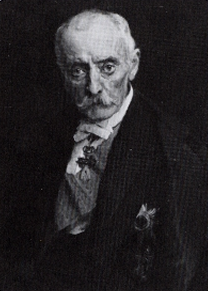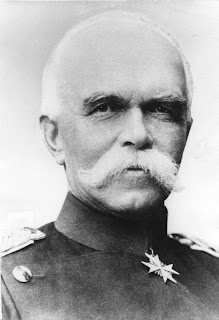



I find recounting my ideas, in my own words, beneficial so.......
Caprivi, he was Chancellor from 1890 - 1894. He embarked on a 'new course' for foreign and domestic policies.
He got rid of the Anti-Socialist laws, introduced Tariff reforms and Social Reforms like child labour laws and hours that women could work. Tariff laws - laws levied against importing countries.
Some people - like the military, Tories and landowners - didn't like the tariff laws, or him. He annoyed the military by reducing the length of conscription from 3 to 2 years. When it was upped, it sparked nationalism. Did the opposite when reduced.
Landowners didn't like the tariff laws - thought it would negatively impact agriculture.
And the Tories didn't like him cause he seemed to be a bit of a socialist. So when he made a mistake, they took full advantage of the situation.
When the Army Bill was rejected, people used this to show the Kaiser how unsuitable Caprivi was for the role of Chancellor.
When the Kaiser asked him to draw up an anti-socialist law, Caprivi refused. He managed to talk the Kaiser out of a plan to realign all power to him and then stepped down, gladly in 1894.
So that was the end of Caprivi.
Then came Weltpolitik 'world politics' - the notion that Germany would become a superpower by expanding across EU then the world.
Influenced by the growth in nationalism, imperialism, social darwinism and radicalisation. Tirpitz made a Navy League in 1898 to further the expansion of the Navy, as outlined in Weltpolitik. It got a lot of support, from across the social and political spectrums - appealed to patriotism etc.
Aligned politicians and people with the Kaiser - unity.
The Chancellor at the time was Hohenloe and 1897 is often viewed as a turning point because a lot of key political figures came to the fore at this time e.g. Bulow. It marked a decisive shift in Germany's foreign policy.
What else? Ah Yes!!
Bulow and all his problems with Weltpolitik - cost of rearming, social reforms, Tariff Laws (they came to a compromise in 1902).
Daily Telegraph Affair - Kaiser revealed too much about foreign policy. Reichstag wanted a way to limit what he said. Bulow sided with the Reichstag. Lost the Kaiser's trust. Demonstrated how the Chancellor's position was vulnerable as they had to keep pleasing the Kaiser - unfair.
Then came the political stalemate under Hollwegg. The SPD became the biggest party in the
1912 election. Though Hollwegg was Tory, he tried to remain neutral to keep everyone sweet as the Reichstag shifted to the left.
The Zabern Affair - German officers v French in Alsace > Violence > condemnation. The army said they were accountable only to the Kaiser. The Kaiser agreed. Reichstag didn't. Hollwegg sided with the Kaiser - didn't make the same mistake as Bulow.
Crystallised division in politics and society. The fact that B-H carried on as Chancellor again demonstrates the power of the Kaiser. Even though structuralists consider him as a puppet for the elites - a 'shadow Kaiser'.
Another problem - military spending in 1912 -13. They wanted more money. B-H, afraid of inheritance tax backlash like one before under Bulow, went with a spirit tax.
Then, they wanted to increase peacetime army. People were okay with inheritance tax here because of the tense political atmosphere.
The key debate concerns whether Germany was 'an entrenched authoritarian state'. I would say yes. Doesn't matter about whether Kaiser was a puppet, he, effectively, controlled everything. The people were ruled by law - rechsstaat - and the weak constitution and the flawed political system increased his power.
So yes overall, Caprivi and his 'new course', Bulow and his 'Daily Telegraph' and 'Weltpolitik' worries and Bethmann-Hollwegg and his military, Reichstag and Zabern affair worries.
COOL. Only ten million more chapters to go!
No comments:
Post a Comment